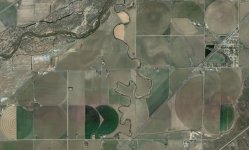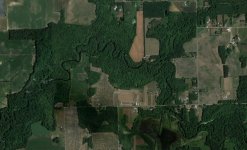This is from the wipedia page: https://en.wikipedia.org/wiki/Freedom_to_roam
"The freedom to roam, or "everyman's right", is the general public's right to access certain public or privately owned land, lakes, and rivers for recreation and exercise. The right is sometimes called the right of public access to the wilderness or the "right to roam".
In Scotland, Finland, Iceland, Norway, Sweden, Estonia, Latvia, Lithuania, Belarus, Austria, Czech Republic and Switzerland, the freedom to roam takes the form of general public rights which are sometimes codified in law. The access is ancient in parts of Northern Europe and has been regarded as sufficiently basic that it was not formalised in law until modern times. However, the right usually does not include any substantial economic exploitation, such as hunting or logging, or disruptive activities, such as making fires and driving offroad vehicles."
For me in northern Scandinavia this basically means that if I want to go camping or paddling down a river with my canoe I don't need to ask any ones permission to do so. When I get tired I go on land and pitch my tent and sleep wherever I feel like. There are some exceptions but in reality those exceptions generally only apply to places where you don't wish to go or to camp anyways. Such as close to a private home, in farmed land, a few protected areas that are fragile, military or industrial areas asf.
When I look at a map over the United State or Canada I am amazed of how much land and rivers there are. Some rivers, even small ones are long enough to travel on for weeks or even longer in some cases. It's also quite clear that these run through many different properties. If it's a river well visited then I'm sure there are designated camp sites and all that but how do you go explore rivers less travelled? Can you? Do you need permission from every landowner along the stretch you are going to paddle? Or only where you want to camp?
This probably varies some from state to state but I would like to hear from you and how you do this. Thanks.
"The freedom to roam, or "everyman's right", is the general public's right to access certain public or privately owned land, lakes, and rivers for recreation and exercise. The right is sometimes called the right of public access to the wilderness or the "right to roam".
In Scotland, Finland, Iceland, Norway, Sweden, Estonia, Latvia, Lithuania, Belarus, Austria, Czech Republic and Switzerland, the freedom to roam takes the form of general public rights which are sometimes codified in law. The access is ancient in parts of Northern Europe and has been regarded as sufficiently basic that it was not formalised in law until modern times. However, the right usually does not include any substantial economic exploitation, such as hunting or logging, or disruptive activities, such as making fires and driving offroad vehicles."
For me in northern Scandinavia this basically means that if I want to go camping or paddling down a river with my canoe I don't need to ask any ones permission to do so. When I get tired I go on land and pitch my tent and sleep wherever I feel like. There are some exceptions but in reality those exceptions generally only apply to places where you don't wish to go or to camp anyways. Such as close to a private home, in farmed land, a few protected areas that are fragile, military or industrial areas asf.
When I look at a map over the United State or Canada I am amazed of how much land and rivers there are. Some rivers, even small ones are long enough to travel on for weeks or even longer in some cases. It's also quite clear that these run through many different properties. If it's a river well visited then I'm sure there are designated camp sites and all that but how do you go explore rivers less travelled? Can you? Do you need permission from every landowner along the stretch you are going to paddle? Or only where you want to camp?
This probably varies some from state to state but I would like to hear from you and how you do this. Thanks.
Attachments
Last edited:


